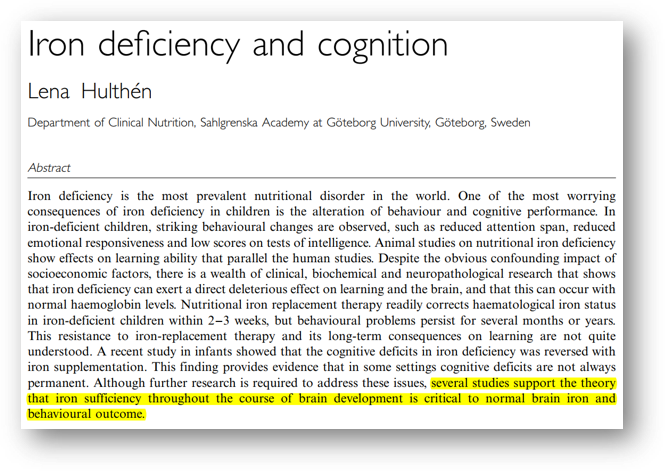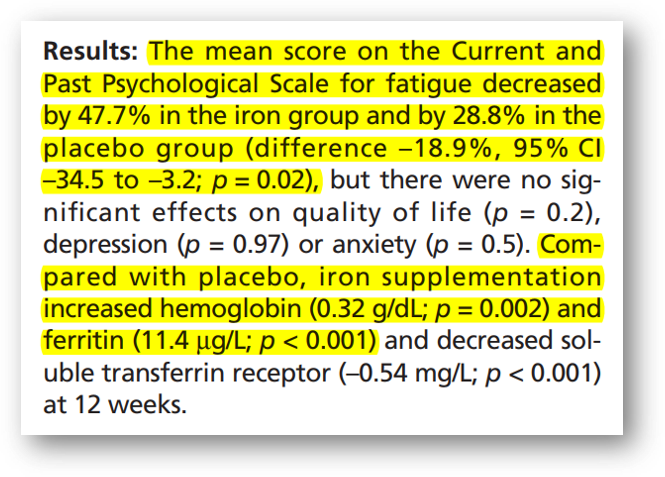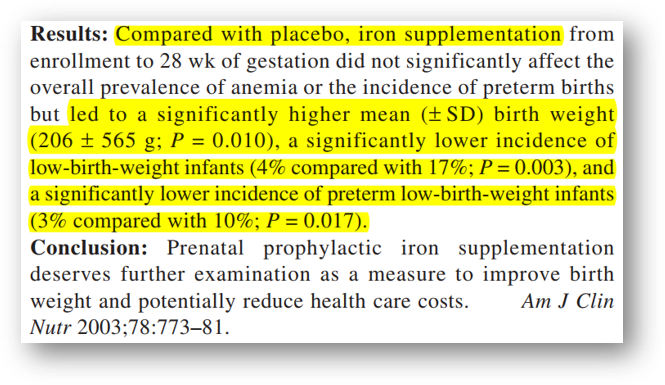Pharmacist who reads papers
"These people" don't have to be anemic to pay attention to iron
1. Brain Development2
. Improving women's fatigue and increasing hemoglobin and ferritin
. Improving women's fatigue and increasing hemoglobin and ferritin
3. Maternal and fetal health

Hello. I'm a pharmacist Jinny.
Today, I would like to introduce you to iron, a mineral that is essential for the synthesis of hemoglobin, which transports oxygen in the body. If you feel dizzy, tired, or have a pale complexion, the first thing you suspect is anemia. Because 'iron deficiency anemia' is the most common form of anemia, most patients diagnosed with anemia are prescribed iron supplements.
Therefore, when it comes to iron, it is easy to think that it is only necessary for people with anemia. However, even if it is not for the purpose of treating anemia, there is a life cycle in which supplementation is recommended due to increased needs. Growing children and adolescents, adult women, and pregnant women.
Today, we're going to look at the importance of iron supplementation at different times of year in a research paper.
1. Brain development
Iron deficiency is one of the most common nutritional disorders around the world. However, iron deficiency in infants and young children has been found to affect cognitive abilities such as decreased attention and decreased emotional responses.
A 2003 study reviewed data on the effects of iron deficiency on brain development and concluded:

"Several studies support the theory that iron deficiency in brain development is very important for normal brain iron and behavioral outcomes.”
2. Improving women's fatigue and increasing hemoglobin and ferritin
Women of childbearing age are more likely to be deficient in iron, even if they are not anemic, and may feel dizzy and tired, especially during menstruation. This is a phenomenon in which blood from the whole body gathers in the uterus to discharge menstrual blood, and it temporarily reduces blood flow, which can greatly interfere with studies and work.
IN 2012, A PAPER WAS PUBLISHED IN THE CANADIAN MEDICAL ASSOCIATION JOURNAL THAT REPORTED THAT IRON SUPPLEMENTATION COULD ALSO HAVE AN EFFECT ON IMPROVING FATIGUE IN WOMEN WHO ARE NOT ANEMIC.

"Mean scores on current and historical psychological scales of fatigue decreased by 47.7 percent in the iron supplement group and 28.8 percent in the placebo group. Compared to placebo, iron supplementation increased hemoglobin and ferritin (the primary form of iron stored in cells). (Summary)"
3. Maternal and fetal health
Did you know that there are nutritional ingredients that the government provides free nutrition to pregnant women? Folic acid and iron. From the fifth month of pregnancy, the fetus's growth rate accelerates, and the need for iron increases rapidly, but it is difficult to supplement it with a regular diet, so the government subsidizes iron supplements to improve the health of pregnant women and their fetuses.
This policy has been in place for decades because the importance of iron supplementation in pregnant women has been proven. A 2003 study showed that iron supplementation in pregnant women also affected the newborn's birth weight.

"Compared to placebo, iron supplementation significantly increased mean birth weight and significantly reduced the odds of low birth weight, as well as the odds of preterm birth weight in low birth weight."
Even if you don't have anemia, we've looked at when and why you should supplement with iron. I hope that 2022 will be a year in which you pay more attention to nutrition, which is the foundation of good health.
I hope you have a healthy day in body and mind. It was Jinny
[1] Lena Hulthén (2003). Iron deficiency and cognition, Scandinavian Journal of Nutrition, 47(3):152-156.
[2] Paul Vaucher, Pierre-Louis Druais, Sophie Waldvogel and Bernard Favrat (2012). Effect of iron supplementation on fatigue in nonanemic menstruating women with low ferritin: a randomized controlled trial, CANADIAN MEDICAL ASSOCIATION JOURNAL, 184(11):1247-1254.
[3] Cogswell ME, Parvanta I, Ickes L, Yip R, Brittenham GM (2003). Iron supplementation during pregnancy, anemia, and birth weight: a randomized controlled trial. Am J Clin Nutr. 78(4):773-781.
[2] Paul Vaucher, Pierre-Louis Druais, Sophie Waldvogel and Bernard Favrat (2012). Effect of iron supplementation on fatigue in nonanemic menstruating women with low ferritin: a randomized controlled trial, CANADIAN MEDICAL ASSOCIATION JOURNAL, 184(11):1247-1254.
[3] Cogswell ME, Parvanta I, Ickes L, Yip R, Brittenham GM (2003). Iron supplementation during pregnancy, anemia, and birth weight: a randomized controlled trial. Am J Clin Nutr. 78(4):773-781.



![[Choline Benefits] Essential for Brain Function? 3 reasons why academia is paying attention to choline](http://esther-mall.com/cdn/shop/articles/52.jpg?v=1734026080&width=480)
